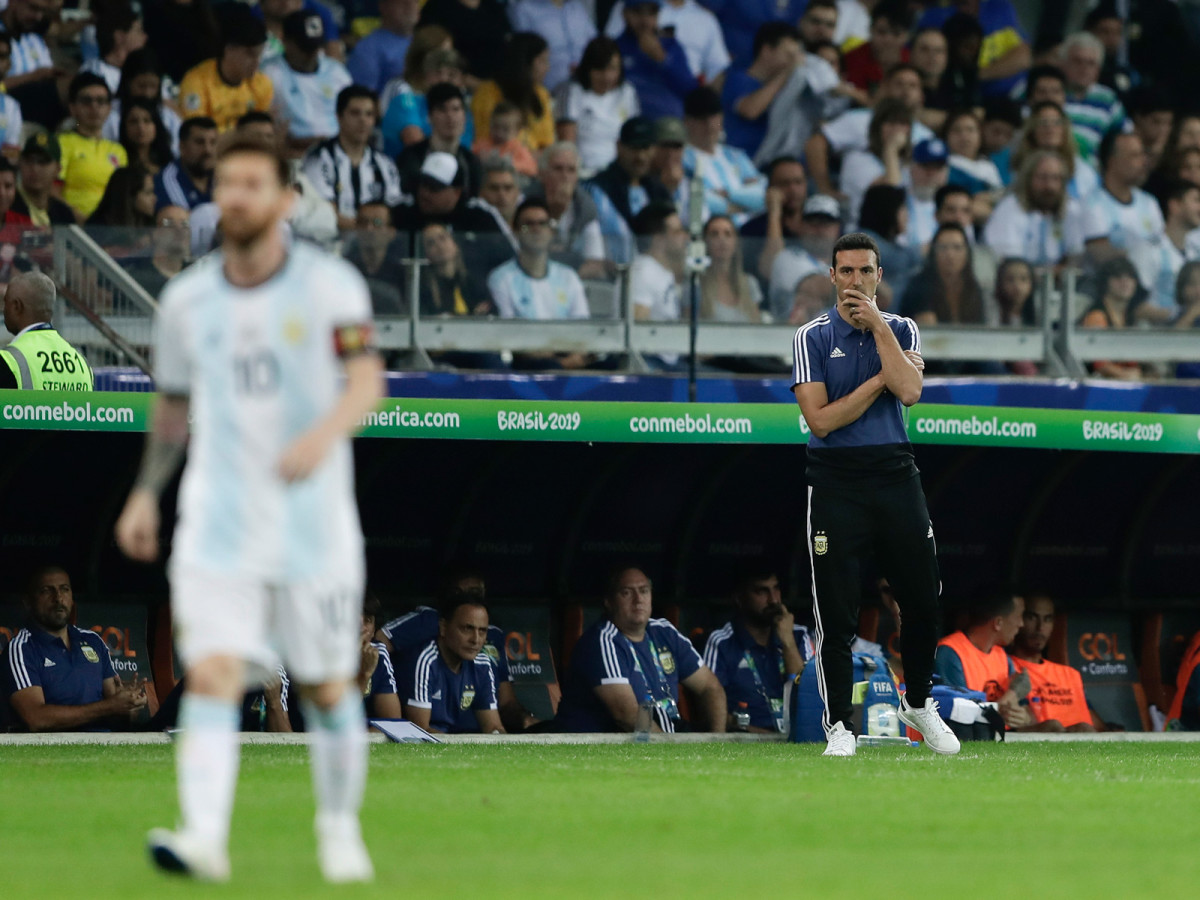How Has it Come to This for Argentina?

It’s hard to comprehend how it has come to this, but Argentina goes into its final Copa America group game against Qatar needing to win to have a chance of progressing to the quarterfinals of the competition. Qatar, the Asian champion, is a much-improved side these days, but still, there is something poignant even in the thought that the emirate could eliminate the two-time World Cup winner.
For years, as it lost in three Copa America finals and a World Cup final, the question was whether Lionel Messi could win a senior international competition and break a drought for his country that now stretches back 26 years. Now the issue is much more pressing: can Argentina avoid the humiliation of a first-round exit in a competition that loses only four teams in its group phase?
And yet, freakish as the circumstances feel, this has been coming. Managers with the track record of success of Gerardo Martino and Jorge Sampaoli have struggled to find balance in a side that has become increasingly and debilitatingly reliant on Messi. So there was no reason to think that Lionel Scaloni, whose stint as caretaker coach, intended initially as a stopgap after Sampaoli’s departure and was extended through Copa America, would suddenly find a magic formula. He, after all, had never taken charge of a competitive fixture of any kind before the defeat to Colombia.
Scaloni, unsurprisingly, has looked wholly out of his depth. In his 11 games in charge, he has started with 40 different players. He ended the (extremely fortuitous) draw against Paraguay with the same attacking formation he had abandoned at halftime in the opener. Long-term planning is necessarily difficult for a caretaker, but some form of planning might have been helpful.
But while Scaloni has made some very strange decisions, blaming him feels vaguely pointless. He is a symptom of the crisis not a cause. Argentina has a very good recent track record of producing high-class coaches. Three of the four sides in the last Copa Libertadores and Champions League finals were Argentinian. So were the coaches of the sides that won the Europa League in 2018 and Copa Sudamericana in 2017. Five coaches at the World Cup were Argentinian. Three coaches at this Copa America are. And yet Argentina, through the incompetence and poverty of its federation, has ended up with somebody of zero experience.

Argentina so far has been dreadful, inhabiting the worst of all worlds. It lacks creativity going forward–so much so that it failed to muster a shot on target in either first half–and yet the predictability and rigidity of its midfield has not brought any level of defensive solidity. Every opposition counterattack looks dangerous. It’s reasonable to ask why the flow of great Argentinian central defenders has dried to a trickle, and to point out that Nicolas Otamendi probably should have been sent off against Paraguay, but it’s also true that the back four has been left exposed by the compete absence of any protection from the midfield. Messi’s brilliance papers over a lot of cracks, but it’s starting to feel that Javier Mascherano, who retired after a World Cup in which his age was an evident problem, papered over many more.
The suggestion is that Scaloni will opt for a 4-3-3 against Qatar with Paulo Dybala making his first start of the tournament in a front three with Messi and Sergio Aguero. Dybala spoke almost two years ago about the difficulties of playing with Messi given how similar they are, but, with Lauturo Martinez injured, it feels as good an option as any.
Club America midfielder Guido Rodriguez, meanwhile, looks like being handed the responsibility at the back of midfield, as he was against Colombia. Again the sense is that it might work; the problem is less the individual decisions than the absence of any sort of plan. If Scaloni believes Rodriguez is the best option, why was he left out against Paraguay?
And the worst of it all, is that the lack of planning infects all levels of the Argentinian game. It has undermined 25 years in which the output of talent has been extraordinary, and it has slowed that flow of promising young players. At the moment, it feels as though Argentina stands on the brink of an epic humiliation, but the danger is that this might be the new normal. It may be that those constant years of near misses, frustrating as they were at the time, may soon come to feel like a golden age.
